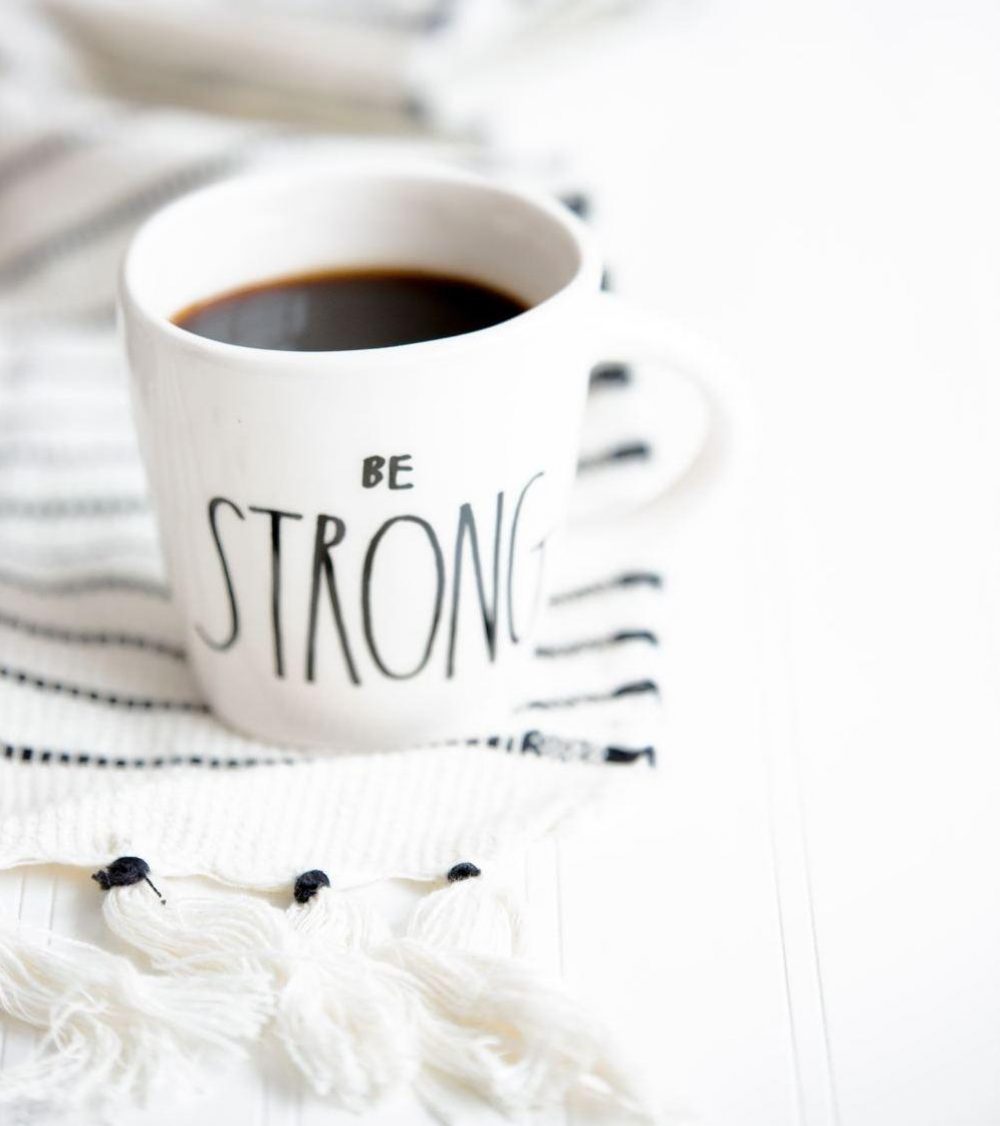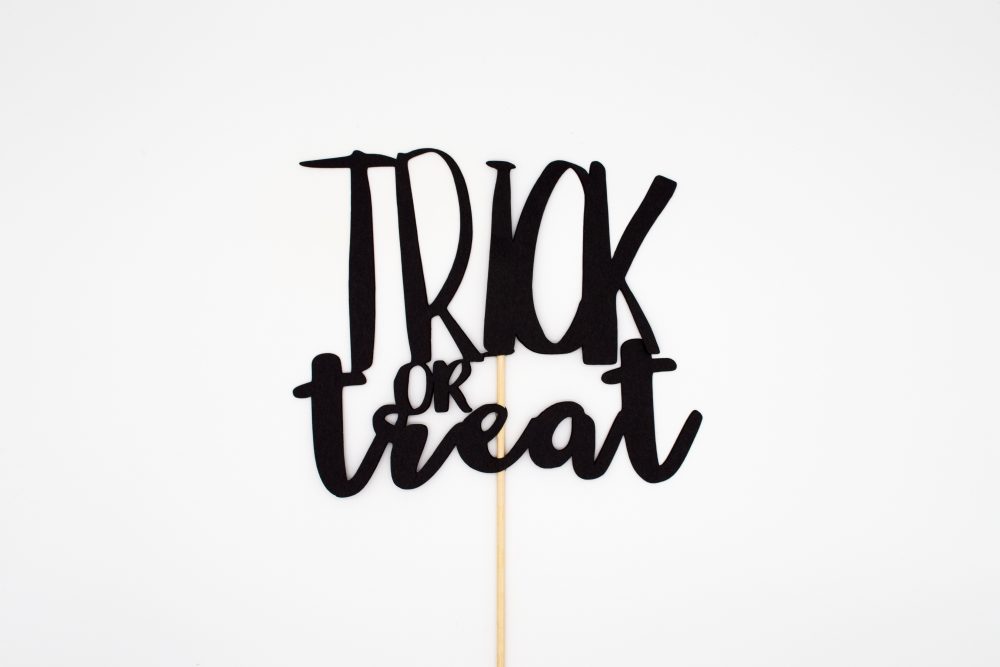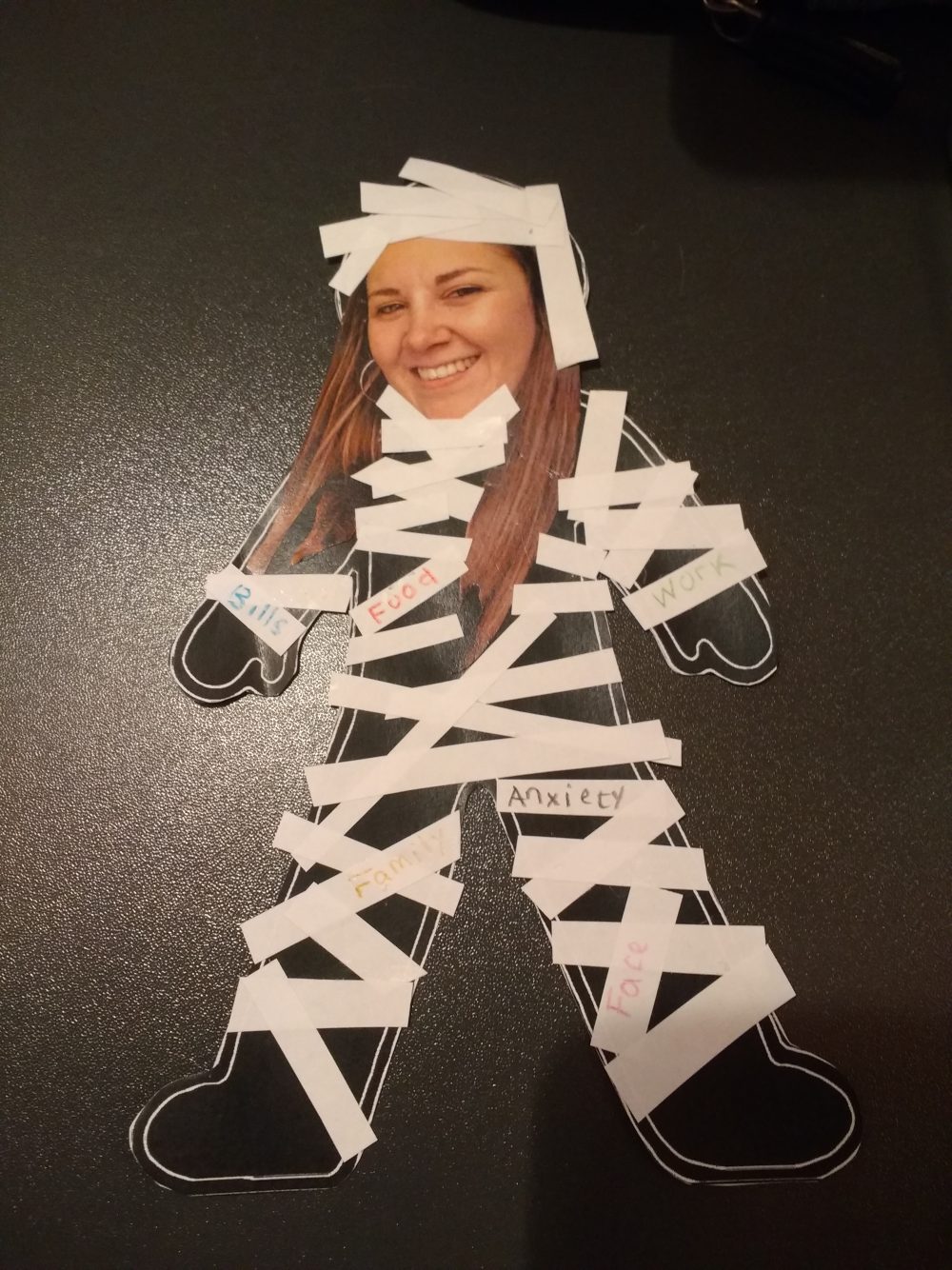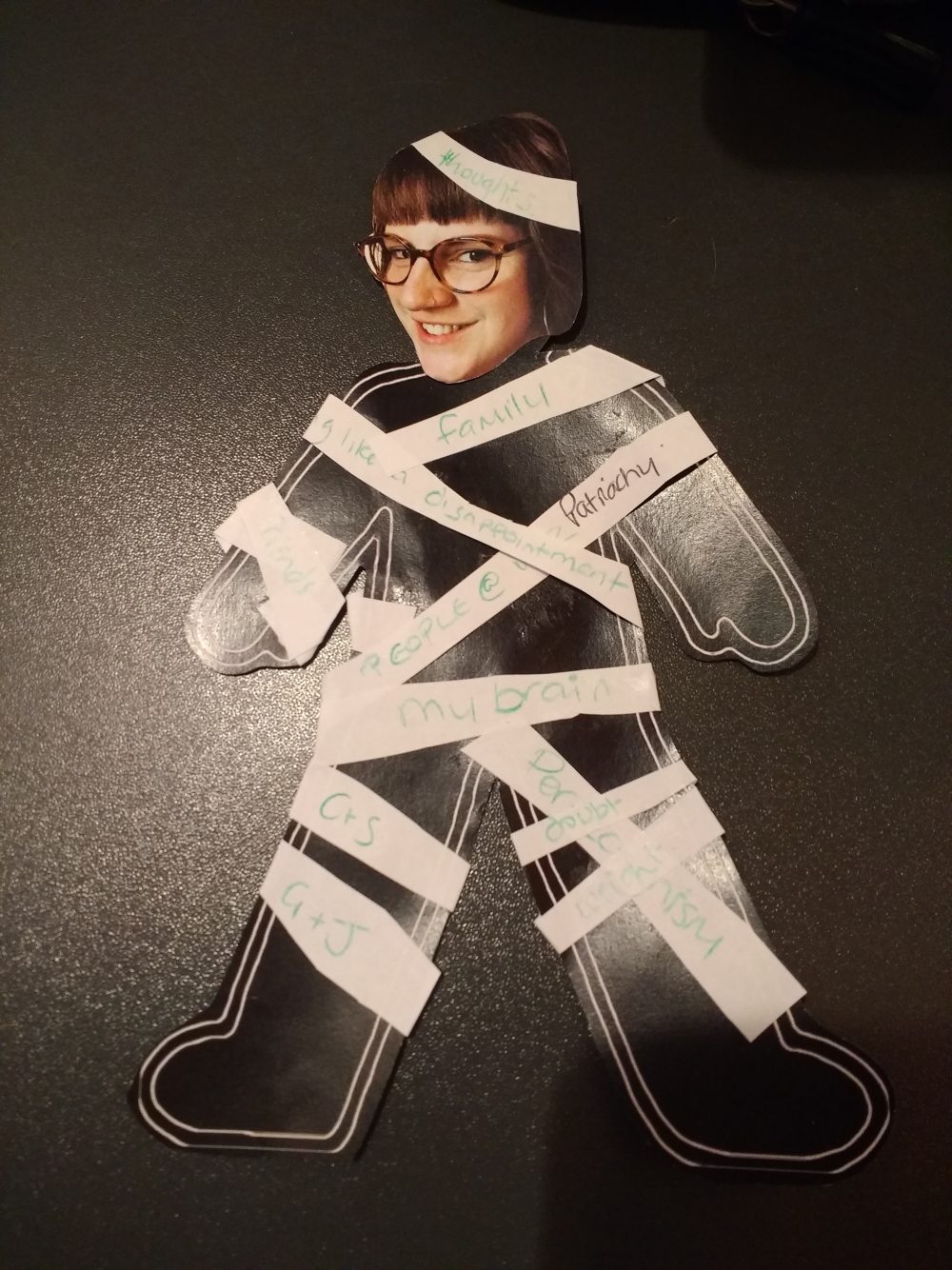You're on the Young People Site
Dedicated to self-harm recovery, insight and support.

This article was written by Sophie, a previous Graduate Volunteer with Youthscape, to celebrate World Music Day.
I am a massive lover of music; I’m constantly listening to it. I’ve actually got my headphones in now as I write this!
Music is powerful. It can be so influential, and can be used as a way to express feelings, share a particular message, tell a story, and bring people together. There’s always something for everyone’s taste. You can study music, create it, or simply just listen and appreciate it. There is so much I love about music, where do I even start?
I’ve grown up in a musical family. My dad led the music at Church and was always playing his guitar and singing around the house. Whenever we would see his side of the family, it would always end up in a good ol’ sing song, and it still does! My brother is also very musical and I’d say I am too, though not to the same extent – my guitar playing skills are a little rusty! However, as I said, I’m always listening to music, and it has certainly helped me through life.
Music is everywhere we go; most shops we go into will always have music playing in the background, and I’ve even been in some shops that have a DJ! I also particularly like the pianos at St Pancras train station, free for anyone to play. It amazes me how much talent there is out there, and being able to hear a performance live is always so great! I love when you can literally feel the music, the bass in your chest, those songs that give you goosebumps, music that really resonates with you.
I love that music is for any and every mood, from when you need a good cry, to when you’re absolutely pumped and feel on top of the world! Music would help me through times where I felt alone and it would sometimes express my emotions – you know, when there’s a song that completely describes how you’re feeling or what you’re going through? Or when a song puts into words what you struggle to? Music helps calm my anxiety and has distracted me when I need a break from what’s going on around me – headphones in, world out! Music can put me in an amazing mood, it can lift me if I’m feeling a bit down, it can bring back great memories and can make me want to sing and dance around wherever I am (and I will do so where appropriate!)
Music has got me through many hours of work, revision and essays. I know a lot of people who need silence to work, but music motivates me and helps me concentrate (most of the time). I remember my friend once telling me how she got around music being a distraction - she had started listening to songs in a different language so it meant she couldn’t get distracted by singing along to it!
I absolutely love how music brings people together, through the love of a song, band/artist, cause - we recently saw how so many people came together for the benefit concert, to help raise funds for the victims of the Manchester attack and their families. As well as people actually being at the concert, so many people tuned in to watch from home too. Music can connect people across cities, countries and continents, and in a way, it’s like a language we all share.
I just couldn’t imagine a world without music, could you? There are so many reasons to celebrate it today!

The blog below was written by Gill Peck. Gill works as a Service Manager for Community Partnerships. She is passionate about emotional wellbeing; enjoys meeting people from all walks of life and journeying with them to reach their full potential.
That voice.
That voice.
That voice that creeps in, it lingers, hanging around when it knows it isn't welcome. That voice which can be self critiquing about my appearance. That tells me nothing looks good on me as I get ready to go to work in the morning; which makes me think for a while I am all that I can see in the mirror. That voice. That voice that makes me doubt the size I actually am. Knowing I'm a healthy size 10 yet the mirror making me feel dissatisfied at times with the reflection looking back at me. That voice that then makes me annoyed, knowing it isn't welcome and I shouldn't listen to it. Knowing I've developed a healthy relationship with food, no longer comfort eating my emotions away.
But If I could change one thing it would be that voice. That voice that pops up once in a while and then stays a little longer than welcome.
Over the years I've learnt to become more and more satisfied with life, with what I have and enjoying life in the present, not wishing for the future or longing for the past.
Yet that voice still pops up every now and then... And when it does, it makes me doubt myself.
When I was given the theme for this blog post, I decided I would be vulnerable. Decided I'd let some of my guard down and share that battle I still face at times.
So often, people can be quick to look at pictures of my slimmer figure and assume everything must be perfect. Yes, I do feel better, so much better in myself since losing some weight to benefit my health and yes, I am in a good and happy place with life overall. However, that doesn't mean I don't still struggle at times with that voice.
I had been in a great place with loving myself and all that I am. But the other night saw me burst into tears when someone asked me an innocent question and that voice told me they must have thought I had put on weight. Yet as I processed how I was feeling, I was reminded that anxiety can have a way of lying to you, of making you believe things which aren't true and can leave you feeling exposed, vulnerable and raw.
Thankfully time and time again, I am reminded that vulnerability is strength.
Choosing to tell someone when you're struggling brings a sense of freedom. Knowing you're not on your own. Knowing someone cares and not only listens but hears what you're saying.
I've found speaking out and saying how I feel when that voice visits, lets me fight it quicker and stops it getting louder and bigger. I continue to enjoy my food, good meals out and love cooking, that voice isn't related to that, it's related to appearance.
It can be a scary concept telling someone how you're really feeling, but by doing so, it can also be the very thing to help you work through situations you face, knowing you're not alone.
Despite me telling my boyfriend how stupid I was for crying and feeling rubbish and horrid, and a load of other things; he comforted me and told me I wasn't any of those things but he heard me. He didn't try to dismiss how I felt but he reassured me and worked through with me how I felt and helped me corme out the other side. Sometimes we need to find another voice, outside of our own to help guide us through.
I wonder if you have a voice, whatever that voice may be that you could sit with and share with others? Choosing to be vulnerable can be the steps to rising above it and moving forwards. After all, as Brene Brown says 'vulnerability is the birthplace of innovation, creativity and change."
What is out there that could be new for you?

The blog below was written by Marc. Marc is the founder and owner of Dingy Life, a small active clothing brand based in the UK.

I am a veteran mountain biker and outdoor activity enthusiast and mentor. I have competed in endurance events and races at national level and around the world. In the past years my health has suffered through various traumas in my life and I suffer from depression, anxiety and self-harm.
Along with SelfharmUK, who have some amazing resources and provide some invaluable help, being active and connecting with the outdoors has been a great medicine and helped enhanced my health and mental wellbeing. With the combined help from SelfharmUK, CBT and outdoor activities all have helped me get through some dark and testing times.

So through my journey came a positive outcome - to inspire others who are suffering with mental illnesses, to connect with the outdoors, to enhance health and wellbeing, and to provide information and support. This year I will be competing in a 24hr mountain bike race raising awareness for mental health in the process.
We ride, we climb, we paddle, we swim, we run, we wild camp, we visit some great places all to inspire others. We also design our own branded clothing and sell second hand clothing to raise money for some great causes... and with that in mind, Dingy was born.

Dingy is an outdoor inspired clothing brand based in the UK, who design their own clothing and sell recycled clothing to support people with mental illness. 20% of our profits are donated to SelfharmUK and Mind.
You can support Dingy Life, SelfharmUK and Mind by purchasing products here.

Feel like you're having a bad day? Why not give the below homemade Pop tart pies recipe a go to help you feel a little better? 🙃
EVERY DAY MAY NOT BE GOOD, BUT THERE'S SOMETHING GOOD IN EVERY DAY HOMEMADE POP TART PIES RECIPE
Ingredients:
- 1 (15 ounce) package refrigerated pie crusts
- 1/4 cup strawberry jam, divided
- 2 cups confectioners' sugar
- 2 tablespoons milk
- 1/2 teaspoon vanilla extract
- 1 tablespoon coloured decorating sugar, or as needed
Method:
- Preheat oven to 425 degrees F (220 degrees C). Line baking sheets with parchment paper.
- Unroll the pie crusts, place on a lightly floured work surface, and roll the crusts slightly with a rolling pin to square the edges. Cut each crust into 8 equal-sized rectangles. Place about 2 teaspoons of strawberry jam in the center of 8 squares, and spread the jam out to within 1/4 inch of the edge of the pastry square. Top each with another pastry square, and use a fork to crimp the squares together, sealing in the jam. Use a knife to trim the pastries, if desired. Move the filled pastries to the prepared baking sheets.
- Bake in the preheated oven until the edges are lightly golden brown, about 7 minutes. Allow to cool on the baking sheets. Meanwhile, stir together the confectioners' sugar, milk, and vanilla extract in a bowl to make a spreadable frosting. Spread the cooled tarts with frosting and sprinkle with colored sugar.

So, this isn’t Derren Brown stuff...
Honest!
Mind training is gently and kindly challenging your friend when they say negative things about themselves (that sounds way easier, eh!?).
Negative thoughts are part of our human mind set. Most of us have to fight the inner voice which tells us we are rubbish, ugly, fat, stupid or unkind at some points in our lives… The key to managing this negative inner voice is to train your brain to tell it to ‘get stuffed’!
If your friend says negative things about themselves often, here are some tips to help them ‘train their brain’:
- Listen to them – don’t say ‘that’s rubbish’
- Don’t get angry when they say negative things about themselves
- Do – ask them to say what the opposite is of the negative thought
- Do – ask them write the positive side of each negative thought they have
- Do – ask them to put the negative thoughts they have written in the bin
- Do – ask them to put the positive thoughts up in their room, or list them on their phone so they can see them and read them when they are saying negative things
- Do – do things together than are achievable and fun. If they hate ice – skating and fall over all the time, don’t go ice skating!
- Do – be positive in the words you use with your friend, even with ‘banter’! It has a huge effect.
Now, try it on yourself too – positive people have a better outlook on life!

The blog post below was written by Deanne.
I’ve never been good at introductions so here we are. My name’s Deanne, Im 16 and like many other teenagers struggle with my mental health. I’ve chosen to write for Selfharm UK because I want to share my story, advice and for you to all know that you’re not alone.
Anxious, paranoid, scared, lonely and isolated. Those five words describe who I was for a long period of time. For someone at the age of 16 this can be an overwhelming experience.
On the day that I found myself in the A&E department with two police officers I couldn’t feel anything but pure fear. Afraid of the two ladies sat with me, afraid of the outcome of this assessment. I had no clue what my future would hold for me and I didn’t care. This lead to the destruction of my life, not being able to remain in school, and ruining relationships with those who cared for me the most. As I sat in that chair, I was in denial. I was blaming everyone else for what had happened rather than accepting that I had responsibility.
It wasn't until they reached out to me (I had spent hours crying, unable to move, paralysed and stuck to that spot) that I was able to receive help. I was diagnosed with anxiety and depression, and I went on to receive CBT under the NHS. This helped me to take my first step on the journey of recovery which I am still invested in and still on now.
1 in 5 children suffer from a mental health illness. Knowing this, I urge anyone suffering to speak out. Whether it’s to a trusted adult, your GP or a family member - please speak out. Struggling with your mental health isn’t a sign of weakness and is much more complex than fixing a broken arm or a broken leg. Offering support, a shoulder to cry on or just being there could mean the world to someone who is struggling.
After years of self-hate I now realised the mistakes I made. I needed help, and thanks to the fantastic support from the NHS, I am back on track. Next year I will be 17 and I plan to start working towards having a career. All it took was for me to be gentler, kinder and fairer to myself. In the hardest of times, please remember to stay true to yourself and not lose sight of who you really are.
Please don't be too hard on yourself, lose sight of yourself, or feel ashamed if you have or haven’t asked for help. Together we will grow, together we will rise and we will thank our lucky stars that we are all alive.

The blog post below was written by Ellen.
The arrival of the New Year can make us feel like we should be transforming into brand new people, and while having New Years Resolutions is a great idea, sometimes the pressure can feel overwhelming.
If you’re reading this then you probably know that self-harm isn’t an easy thing to quit. Like with any addiction, it takes time to get to a place where you’re ready to stop. It’s important to remember that it’s okay to slip up; just because you take a few steps backwards doesn’t mean you can’t then take some strides forward.Megan McArdle, author of ‘The Up Side of Down’ writes that, “failure is a roadmap for what not to do next time.”
Sometimes setting ourselves concrete New Years Resolutions can be incredibly daunting; in fact, it seems more of us give up on them when we’re overly strict with ourselves. It might be an idea to think of more flexible goals: e.g. you could aim to ‘self harm less’ rather than saying you’re going to ‘stop self harming completely’. You could also approach it from a slightly different viewpoint: ‘This year I’m going to find another way to cope with my feelings.’ Maybe you could aim to understand what triggers your urge to self harm and develop ideas of how to beat the urge before it gets too much.
One good thing about New Years is it provides a neat opportunity to wipe the slate clean; stop holding onto all those times you felt bad, or felt like you’d let yourself down, and draw a line under the past year.
While there is an emphasis on parties and extravagance at this time of year, try to remember that what really matters is your own health and happiness. Take things at your own pace; set yourself goals that are realistic; be proud of yourself for all the good things you did in the year gone by. It’s easy to focus on what we’ve done wrong, or the disheartening stories we see in the news, but it’s important to remind yourself of what you’re grateful for and what you’ve achieved.
Jeremy Eden, author of ‘Low Hanging Fruit’, advises that we recognise the things in our lives that deserve “gold plating”, and realise that good is good enough for other things. And Bob Rosen, author of ‘Grounded’, reminds us that it’s perfectly okay to be selfish and take care of our own needs; “Our theory of human development is based on a model that you’re either selfish or you’re community orientated... The truth is that you need to be both. It’s not either-or.”
If you or someone you know self-harms it can be difficult to keep incidents in perspective. Yes, you should aim to (eventually) stop, but allow yourself enough time and expect a few bumps in the road. So maybe you have physical or metaphorical scars, but scars fade, and pain doesn’t last forever; start afresh and move on from what’s behind you.

The blog post below was written by Sophie, a previous Graduate Volunteer with SelfharmUK and Youthscape.
I’m not usually someone who gets really excited for Christmas Day. For as long as I can remember, I was always at my mum’s for half of the day and my dad’s for the other half. I never really had a problem with having two homes – it was quite nice sometimes! But Christmas is the time when having a broken family is highlighted. Seeing other people’s festive photos would get to me. Obviously I knew not everyone was having the perfect Christmas, but seeing friends having big, ‘perfect’ family do’s would just remind me that I didn’t have that. At one house, it was almost like people were trying to play happy families when it wasn’t the case at all. It just felt forced and awkward.
I don’t find it as much of an issue now, and I’m even prepared for the drama I know will take place this year! But around Christmastime, feelings are automatically triggered for me based on how I’ve experienced Christmas in the past. So over the years it’s become normal to not feel the best during this time, but it’s something that is changing!
A few years ago, I was out with some friends and the place where we were, happened to have a Christmas themed night (bearing in mind it was April, so I don’t know what was going on there!) They’d play a Christmas song every few songs and it got to the point where I had to take a step outside as it was just making me feel down. Of course, everyone LOVED it, and they were dancing around, singing at the top of their lungs. I thought everyone liked Christmas, until one of my friends joined me outside. I explained why I was out there, and she turned to me and shared how she didn’t really like Christmas that much either. She was just going along with it, having a sing and dance. It was SO refreshing to hear I wasn’t the only one in there pretending.
However you are feeling this Christmas, you are not alone.
Did you know that it’s okay to not be okay at Christmas?
It sometimes seems like we have to be so joyful at Christmas, so we put on fake smiles and go along with the festivities when really, for some, it’s a time of pain, anxiety, stress. Perhaps Christmas reminds you that a loved one is no longer with you, perhaps it reminds you of how broken your family is. There are many reasons why Christmas may not be the happiest time of the year for you, and that’s totally okay.
The thing is, it’s pretty hard to avoid Christmas altogether, but there are always ways you can try and make it easier for yourself.
Knowing that the urge to self harm is usually heightened at Christmas can give you the upper hand as it won’t catch you off guard. It means you can come up with a number of distractions and other ways to cope in those moments. You can find some suggestions here. Take time for yourself this Christmas – you don’t have to fake how you’re feeling.
This year I’m choosing to shift my focus from the things I don’t like about Christmas, to the things I’m thankful for, appreciating what I do have rather than what I don’t. I want to be thinking more about the real meaning of Christmas rather than being so caught up in my own circumstances. I’m going to make more time for self-care; doing things that help energise and fill me rather than drain me.
A YouTuber I’ve found to be really helpful is Kati Morton. She is a licenced therapist and creates videos on a broad range of topics surrounding mental health and answers questions from her viewers. My particular favourite this year is a video where she gives some handy tips on how you can stay mindful at Christmas...

Some people like this lead up to Christmas, some (like me and my family!), really don’t!
The Christmas decorations look pretty and the shops get busier and the Christmas feeling is in the air – but it doesn’t make me get the warm Christmas glow; in fact it begins to make me stressed right from the moment it starts…
The pressure for the perfect film like Christmas family gathering is unachievable – the perfect family game time; the perfect present wrapping, the perfect friends to go out with, the perfect family to share it will – perfection doesn’t exist, in any place at any time.
The media Christmas portrayal adds to our sense of dread – the pressure to smile, laugh, not row, not feel sad – can make us feel very detached from Christmas: so this year, in the lead up here are some tips:
1. Ignore TV films and adverts! We aren’t going to reach a Hollywood Christmas ideal – so let’s not bother. Watch Elf and comedies – they keep a good perspective on it!
2. Try to imagine Christmas day now – what works for you? Do you need to communicate any of that to your family – who don’t you want to see over Christmas? How long do you have to visit relatives for? Begin to start the conversations now so they don’t come as a shock to your family – take control and be prepared to compromise.
3. Make stuff – loads and loads of stuff! Don’t buy it, make it. Keep your hands and mind busy, the personal stuff doesn’t need to cost much nor does it have to be perfect – enjoy the process and the result.
4. Don’t give yourself sky high expectations of yourself over Christmas. If you need to take regular breaks from family, do it. Look after yourself now so that you have the energy for it as it gets closer; plan out the Christmas holidays so that you get a good balance of rest and play.
Love,
The SelfharmUK Team

What are the things that weigh you down, hold you back and drain you?
We were thinking about this during the Hope Group earlier this week. If you don't know what the Hope Group is, you can read more about it here. What we found was - often the things that weigh us down, hold us back and drain us, are the things that bring us the most joy too.
For example, I really love my family, but sometimes it feels like they make my life a living hell at times! My mum in particular often weighs me down with lots of nagging and asking questions about what I'm doing at the weekend, and why I can't tidy up after myself. This type of criticism can make me feel increasingly drained, knocking my confidence and holding me back from doing things incase I'm no good at them.
Sometimes, writing down all the things in our head that we know are weighing us down, holding us back and draining us is a good exercise to do. This is because taking thoughts out of our head and onto paper can make them appear a lot less powerful and give us more control over them.
Here's the activity we did during the group...
Bandaged Mummies activity


To make your own Bandaged Mummy, you will need:
- Scissors
- Glue
- Plain A4 white paper
- A photo of your head
- A piece of A4 black card
1) Use the black card to cut out a body shape
2) Cut out the photo of your head and stick it onto the body shape
3) Cut up strips of white paper and stick them like bandages on your mummy
4) Think about all the things that weigh you down, hold you back and drain you, and write them on the bandages
5) Keep your mummy as a reminder of all the things that can weigh you down, hold you back and drain you - BUT REMEMBER - you have control over how they make you feel!
Happy Halloween 🎃
Happy National Poetry Day friends! To celebrate, we've got an inspiring poem by Nikita Gill titled 'A Conversation with My Mental Illness.' If you read it and want to share your thoughts, you can comment your answers to the below questions on our Facebook, Twitter, Instagram or Tumblr accounts. We'd love to hear from you!
What do you think is the main thing being said in this poem?
How does the poem make you feel? Why?
Are there any lines or words which you specially like?
A Conversation with My Mental Illness
Every sleepless night I am interrogated
by the darkness that lives inside of me.
It says to me:
'You are pointless.'
I respond:
'No one in this world is pointless.'
It scowls at me:
'You are a terrible person.'
I admit:
'I am a good person who did terrible things.'
It rages at me:
'No one needs you.'
I countered:
'There are people who have adored me.'
It seethes at me:
'And what of those who hated you?'
I sigh:
'Being unforgiving of others is a sign of insecurity.'
It finally explodes:
'I will make sure you always doubt yourself!'
And every night
I gather my courage
as my armour and say:
'And whenever you do,
I will look at the vastness
of the every changing style
the presence of a moon
that helps the sea
the same sunset that has been going
around the earth
for billions of years
and remind myself
that the same universe that made them
and gave them such purpose
also made me.
And nothing you say to me
will ever convince me otherwise
because that is a fact
I will never question about my journey.'
Taken from the book Wild Embers by Nikita Gill, p14.

When preparing for a CAMHS appointment, it is important to realise, whoever you see wants to help you. Their job is to find out as much as they can about you so they can put support in place for you.
If you had a broken leg you would go to the Doctor; if you aren’t doing so well mentally, it's ok for you to need a doctor too. No one is judging you.
Follow these 8 steps before heading off to you appointment...
Step 1
Write down all the questions you have or would like to ask: do they tell your parents stuff? Do they contact school? What will happen if you tell them you self-harm?
Step 2
Write down as much as you can about what has been happening to you recently
Step 3
Write down anything you feel is important about things that happened to you when you were little – they might impact your wellbeing now.
Step 4
Write a list of people that are important to you – it will help CAMHS know about your key relationships
Step 5
Think about how you prefer to communicate and let CAMHS know: talking might be hard, writing might be good? Or drawing?
Step 6
Download the assessment they will probably give you (if it’s not this one it will be one like it):
Sdq English Uk S11 17Single
Step 7
Spend a few days thinking through how you might answer as we all change depending on situations; so give a good overview of what you are feeling the majority of the time.
Step 8
Take anything to the session you would like – a teddy, a fidget cube or your favourite book to read while you are waiting. The appointment is about you, so you need to feel comfortable.

Self-harming is more common than many people want to admit. It can affect people of all ages and is unique to each person. Because no two cases of self-harming are ever the same, it can be difficult to pin down what triggers it. But, generally speaking, self-harming happens when a person cannot handle emotional pain, so they convert it into a physical one which provides temporary emotional release. Left untreated, this can quickly develop into an automatic reaction to cope with stress. But whether you begin healing straight away, or whether you have been a self-harmer for years, it can be beaten. Here are a few suggestions around how you can help yourself…
People self-harm for many different reasons, and because of this, there are many things you can try out to help you stop, or help you cope with your self-harming.
Identifying what triggers your self-harming can give you more control. Even if you can’t avoid those triggers altogether, you can develop strategies to deal with your emotions when things start becoming overwhelming.
Creativity is often used by people to vent any pent-up feelings and frustrations. It is a way of turning something negative into something positive and can take any form: dancing, painting, sculpting, drawing, crafts. Writing is one that is often used, and it can be a diary, a story, a poem, a letter, or just a scribbled note. You wouldn’t have to show these to anyone. In fact, some people prefer,once they’ve written out all the poison, to tear up and destroy whatever they have just written.
Sports and exercise is also very beneficial. Combat sports especially are fantastic at channeling anger and frustration. They also boost confidence and get you fit.
Getting involved in community projects (like volunteering) or finding ways to help others can be soothing and give you a purpose. However, you need to weigh this option against whatever lifestyle you’re leading. If your life is very busy and intense, you probably shouldn’t add more responsibility to it. In this case, it might be better trying to work in more quiet ‘you’ time.
Learning a new skill does wonders for the mind and body. Give it a try, even if you don’t believe that these would suit you, or that they would help much. You might end up enjoying them or even finding your own!

Changing yourself: not in any big way and not too much at once. Choose one area at a time and work on that. School? A friendship? Your relationship with your parents? The more in control we feel of the choices we make; the better our mental health.
Asking for help: it is hard to ask for help as we are admitting we can’t manage on our own, but the reality is, we aren’t made to. If you think we way to the beginning of time, people have always existed in groups – none of us are meant to manage life on our own so asking for help, not only helps you but actually creates stronger relationships too. Who would you like to ask for help?
Saying no: it’s a hugely important skill. We all need to practise it more, as it means we are taking control about what we don’t want to do; who we don’t to spend to time with; what we aren’t comfortable with…. Is there anything you want to say no to?
Making small steps: don’t try and leap… one small decision a day is a big step forward. Often we want to change so fast and we want it all done now. There are many trite sayings but the fact is, they are true. Long lasting change takes a lot of time and investment. What small step would you like to make today?

Telling someone is a long and hard process for many of us – it starts by choosing who, then deciding how to tell them (face to face, via text or on the phone) then we have to work out what words to use…
The overwhelming response from telling the right person is the feeling of being supported. Once they have heard you and tried to help you work out why; they should suggest telling a professional person like a teacher or Doctor.
A teacher, a parent or Doctor are good people to tell: telling your friend and only your friend puts an unfair amount of pressure on them so together telling someone else who knows how to support you, is more helpful.
If you tell your parent, they will most probably take you to the doctor;
If you tell a teacher, they may inform your parents depending on your school’s policy;
If you tell your doctor, they won’t inform your parents if you are over 14.
One way or another – you will most probably end up seeing your Doctor.
So then what happens...?
Your doctor will ask you:
- How long you have been harming?
- If you know why you harm?
- Have you told anyone else?
- Have you thought of suicide?
If the idea of answering these questions is too overwhelming, you can write your answers before you go and just pass the doctor the piece of paper – it doesn’t matter how you communicate; just that you do.
The Doctor will almost certainly refer you to CAMHS (children and adolescent mental health services). This doesn’t mean you are mad or mentally unwell; it means they are specialists in supporting young people and their counsellors are trained to help teenagers.
Frustratingly, there is a huge waiting list all over the country, it may be up to a year before you get an appointment L Your school might have a counsellor you can talk to; they often have spaces quicker than CAMHS or, which is happening a lot more, young people are seeing private counsellors which their families have to pay for. If you want to look up a private counsellor in your area check out www.bacp.org.uk
The first appointment is called an Access Appointment; it is an assessment to make sure they are the right service for you. They often get you fill in a long form called a Strength and Difficulties Questionnaire which is a multiple choice set of questions about issues such as food, sleep, moods, school, relationships…there are no right or wrong answers as you are the expert in ‘you’!
From there, they will often give you a set of 6 sessions (to start with) with either a mental health nurse, a Community Psychiatric Nurse (a CNP it’s called for short) or a Psychiatrist. It doesn’t matter which you see and there is no real distinction between them, it’s often about who has space for you in the diary.
It is a Consultant Psychiatrist who will over- see your case and line managers the others to make sure they are supporting you; it is also the psychiatrist who can write prescriptions if it is felt you need any medication to help you until your mood stabilises.
www.headmeds.org.uk is a great website to help you understand what medication is what and that it's your choice as to whether you want medication or not.
Each area in the country has a slightly different way of doing things, but overall, this is the process for supporting young people who are self-harming.
